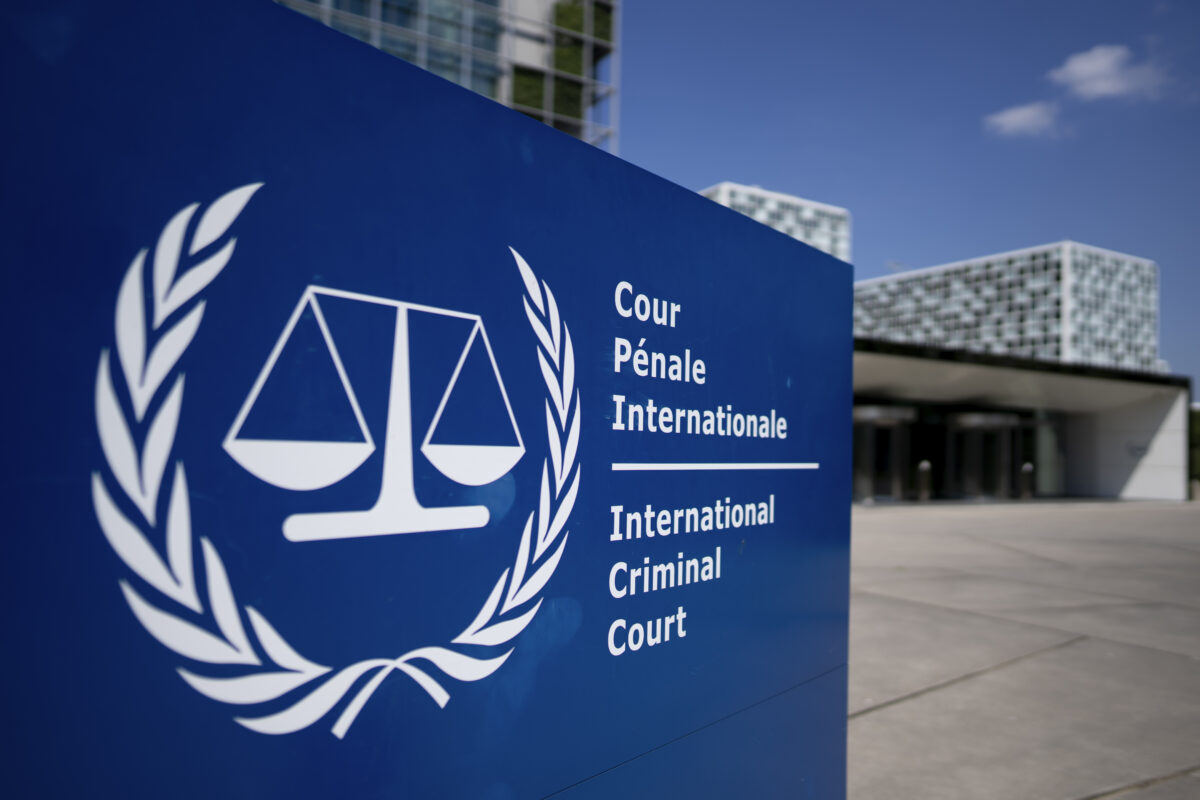ICC EXPLAINER: Fine points in the arrest of Rodrigo Duterte

A view of the International Criminal Court in The Hague, Netherlands. —File photo from the Associated Press
MANILA, Philippines — The arrest of former President Rodrigo Duterte due to a warrant issued by the International Criminal Court is unlawful, his former chief legal counsel, Salvador Panelo, insists.
“The PNP didn’t allow one of his lawyers to meet him at the airport and to question the legal basis for PRRD’s [President Rodrigo R. Duterte’s] arrest,” Panelo said in a statement.
Duterte is accused of committing crimes against humanity during his bloody war on drugs.
Based on #RealNumbersPH Year 6, from July 1, 2016, to May 31, 2022, a total of 6,252 were killed during drug-related operations, but data from human rights organizations showed that the drug war victims could number over 20,000.
However, the period covered by the complaint against the former President was from when he was still mayor of Davao until 2019.
READ: LIVE UPDATES: Duterte arrested by PNP after ICC issues warrant
When is an arrest warrant issued?
The complainants submit their evidence.
The ICC also conducts its investigation and talks to witnesses to determine the veracity of the complaint.
READ: ICC crowdsourcing evidence vs Duterte
Then, the judges will assess if there are “reasonable grounds to believe” that the alleged crimes were committed.
Communication and coordination
The Marcos administration repeatedly said it will no longer cooperate with the ICC following the country’s membership withdrawal in 2019.
However, after the warrant issuance, Malacañang confirmed its existence instead of the Department of Foreign Affairs (DFA).
Why is this so?
READ: Palace confirms arrest warrant from ICC for Rodrigo Duterte
“We do not know the circumstances why Malacañang was the one who confirmed the existence of the arrest warrant,” lawyer Edre Olalia said.
But he added that it could be possible that the DFA, as part of the executive department, gave way to the Palace to make the announcement.
Residual obligation
Before Malacañang’s confirmation, officers of the Philippine National Police (PNP) were already at the Ninoy Aquino International Airport (NAIA), waiting for Duterte’s arrival from Hong Kong.
Upon Duterte’s arrival, the PNP, through the Criminal Investigation and Detection Group (CIDG) and Philippine Center for Transnational Crime Executive Director Anthony Alcantara accompanied the International Police (Interpol) in serving the arrest warrant.
Olalia, chairperson of the National Union of Peoples’ Lawyers (NUPL) and Transitional President of the International Association of Democratic Lawyers (IADL), said the country is no longer part of the ICC but is still committed to the Interpol.
Olalia is referring to the country’s Interpol membership since 1952. President Ferdinand Marcos Jr. reaffirmed the country’s membership in 2024 when he said, “We have obligations to Interpol, and we have to live up to those obligations.”
“I would explain this in terms of residual obligations after withdrawal from the Rome Statute (recognized by Pimentel vs. Cayetano, obiter 2021). This is the only way the government can justify its legality. Its acts today are implicit recognition of that, for another reason — per the 2005 Interpol-ICC cooperation agreement, Interpol can only implement red notices in States that are parties to the Rome Statute,” lawyer Romel Bagares of the Center for International Law (CENTERLAW) said.
Residual obligation must still be fulfilled even after a contract has ended.
Here, Duterte’s crimes against humanity case includes acts committed while the Philippines was still part of the ICC.
“The duty to cooperate under Article 127 of the Rome Statute already vests even at the preliminary stage, so regardless or whether the withdrawal had already taken effect before the ICC PTC granted authorization, jurisdiction was operative,” Bagares said.
He added: “If there is no such residual obligations, the Interpol has no business asking the cooperation of the Philippines to implement the warrant of arrest.”
Custodial state arrest proceedings
Following Duterte’s arrest, both Bagares and lawyer Maria Kristina Conti, ICC assistant to counsel, mentioned Article 59 of the Rome Statute, which provides the proceedings in the custodial state — in this case, the Philippines.
Article 59 states: “A State party which has received a request for provisional arrest or for arrest and surrender shall immediately take steps to arrest the person in question in accordance with its laws…”
Conti said: “The Philippines is currently the arresting and custodial state, according to the Rome Statute, in Duterte’s case. We have obligations to ensure due process, and the petition to the Supreme Court is one such mechanism.”
During the service of the warrant, the chief state prosecutor, Richard Anthony Fadullon, witnessed the proceedings.
“The former president was read his rights and informed of the charges against him. Clearly, it was read to him that the warrant of arrest was issued by the ICC on the following charges — crimes against humanity and murder,” Fadulon said.
“Precisely, we observed due process by reading him his rights and ensuring that the dignity of the former president is protected,” he added.
Duterte’s remedy
Under Article 59, the person arrested can apply before a competent authority for an interim release pending surrender.
“An extradition proceeding is the next step, as provided in Article 59 paragraph 2 of the Rome Statute,” Bagares said.
“Our extradition law says you can’t send away someone being sought abroad for a crime without a proper extradition proceeding. And Article 59 of the Rome Statute recognizes that,” he added.
Duterte, along with Sen. Ronald dela Rosa, has a pending petition before the Supreme Court to stop the government from cooperating with the ICC.
READ: Duterte, dela Rosa ask SC to stop gov’t from cooperating with ICC
While Duterte’s lawyers challenge the arrest warrant’s validity, the Philippines still has an obligation to implement it.
Whether the Supreme Court intervenes remains a question, but what is certain is that Duterte’s arrest is a test of the Philippines’ stance on international accountability and the rule of law.